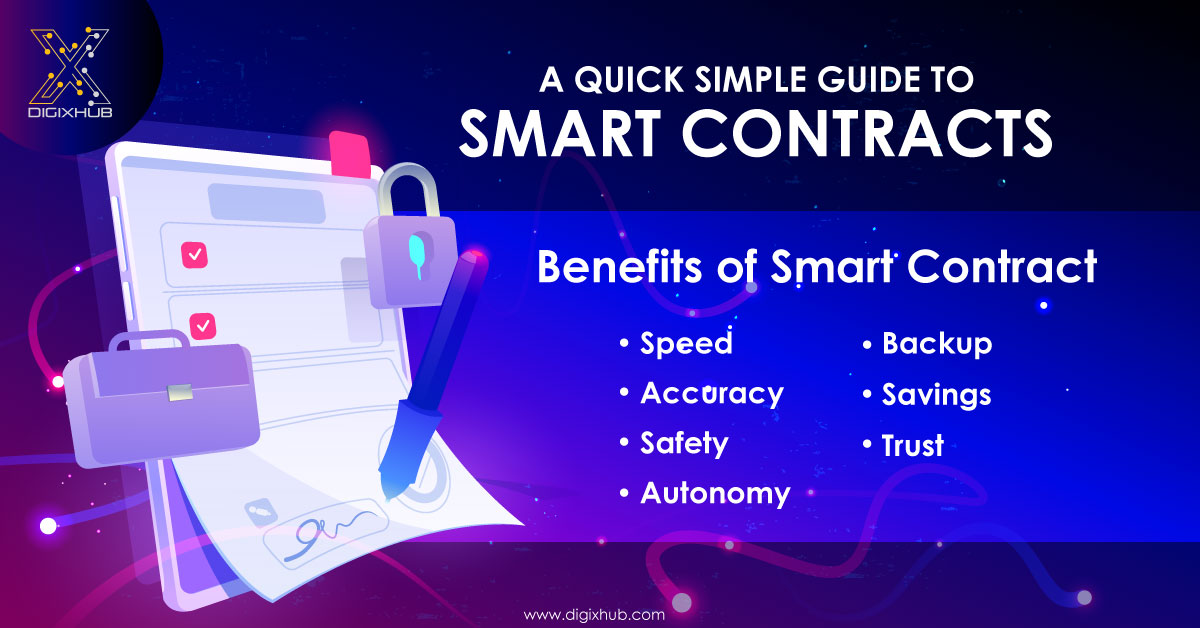

We often hear the word ‘Smart Contracts’ thrown around whenever a discussion happens about blockchain. This might come out to be a bit confusing especially to those individuals who are unaware of what smart contracts are and how they work.
So, here is a quick simple guide that will walk you through all the aspects of smart contracts.
What Are Smart Contracts?
‘Smart Contracts’ - the term was first coined by a prominent computer scientist and cryptographer – Nick Szabo when he first put forward the idea way back in the 1990s. Szabo found that decentralized ledger technology can be used for smart contracts, and Bitcoin became the first cryptocurrency that supported basic smart contracts.
Though bitcoin does enable the development of smart contracts viz escrows, time locks, payment channels, and multisig accounts, their use cases are limited to some extent. On the other hand, Ethereum was created keeping smart contracts in mind. Therefore, it enables the development of decentralized applications. Presently, it is one of the most remarkable smart contracts being used.
How Smart Contracts Work?
Unlike traditional contracts that are drafted by lawyers, smart contracts are developed through cryptographic codes. Smart contracts are written in codes and contain complex if-then statements. They have the ability to self-execute, but it is only fulfilled during instances when it meets the specific established conditions.
Due to this reason, smart contracts eliminate the requirement of a third party enabling participating parties to make transfers directly.
Benefits of Smart Contracts
Being digitally automated, there are minimal to fewer chances of errors when you are dealing with smart contracts than traditionally written manual contracts.
Blockchain has got all the data duplicated. Therefore, even if you lose your data, you have not really lost it.
Smart contracts as stated earlier eliminates the requirement of third parties like lawyers, intermediaries, brokers, etc. Therefore, you get to have complete control over your agreement without having to worry about manipulations by third parties.
With intermediaries eliminated, you will get to cut short a lot of expenses.
Smart contracts are hack resistant as they are protected with complex cryptography.
You can completely trust the shared ledger where your documents are stored. As they are encrypted, there will be no risk of stealing or data loss.
Smart contracts leverage software code to automate tasks, unlike traditional contracts where you will have to spend a massive lot of time in paperwork. Therefore, smart contracts cut off the time required to process a contract.
An Important Question – Will Smart Contracts Replace Lawyers?
It is true that smart contracts are revolutionizing how contracts are made across different industries. However, we aren’t really sure whether it would replace lawyers and traditional contracts.
Essentially, the group of people who believe smart contracts will tag lawyers useless also believe that code is law. But smart contracts are simply codes that are used to execute a fundamental legal agreement. Smart contracts are not the law itself.
As for now, smart contracts aren’t legally binding.
